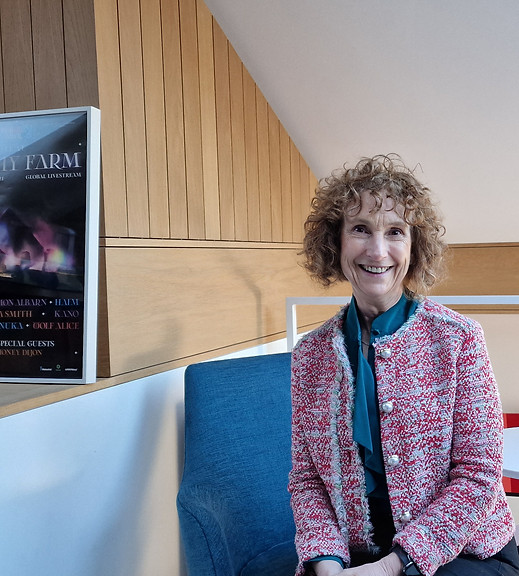
ABOUT FRANCES
I grew up in a loving family and my schooldays were a happy jumble of fun and achievement: I attended a large comprehensive where I played violin to an advanced level.
But there were also hopes unfulfilled. I struggled as my dyslexia went undiagnosed, then the dream I’d always had of going to music school came to a sudden, shattering halt when I failed to make the grade.
I had found inspiration in creating with others, learning to build relationships, the camaraderie of playing in an orchestra. But how could I make that my career?

Frances Middleton
MA, BA Hons, ADEP, UKCP
And then a breakthrough when, having stumbled onto a university course in Textile Management, I started studying Personnel Management. It was both inspiring and effortless and I realised, with the thrill I recognised from my orchestra days, that I’d found my way home.
With my professional qualification in Personnel Management under my belt I moved to London, embracing the life of the big city and what was to become my seminal role at J P Morgan.
Swiftly promoted to vice president, I led a multi-national team of 33 professionals across seven European countries and all the while juggling married life, returning to work from two maternity leaves and the extensive travel my role demanded. Then burnout. Complete emotional burnout.
Was this what I wanted for the rest of my working life? Something had to change. I had zero enthusiasm for the job and no more emotional energy to give.
After some deep soul-searching I was clear what I didn’t want and, crucially, what I did want and hadn’t felt for far too long: to wake up each morning longing to get to work and for that work to stimulate me.
I spent a few months recharging my emotional batteries: spending time with the family, doing the school run, talking to many friends and colleagues and playing with various ideas: job sharing, running my own business, consulting, another “big” role, moving to the States. Then it came to me.
Towards the end of my time at J P Morgan I had become the confidante of a senior executive at the firm and the affinity that had emerged from my intellectual and emotional grasp of his issues had inspired us both.
That defining passion, that deep curiosity about people and what motivated them had always been there, of course.
But now I wanted to focus less on the macro—teams or organisations—and more on the micro, the individual.
Coaching caught my imagination. But even before taking this step, I found myself being confronted by a group of business psychologists: did I really think I had a clue how to support, develop or coach individuals? If I had any doubts, they told me, the answer was to do some psychotherapy.
“Therapy? I don’t need therapy!” I argued, but I signed up all the same. I embarked on a three-month programme working with a therapist and then, by now thoroughly intrigued, enrolled on a foundation course in psychotherapy and counselling at Regent’s University London.
Challenged in every way—emotionally, intellectually, professionally and personally—I emerged six years later with an MA followed by a post-MA diploma and as a member of the UK Council of Psychotherapy.
Since then, I am happy to have achieved my ambition of allying the rigour of my academic and philosophical training with my experience of business and leadership and the commercial world.
Life experiences continue to influence and enrich my practice and work. I have been asked to develop a coaching training programme at Regent’s University London and I have contributed a case study for Leadership Partner and Coach Anni Townend’s 2007 book ‘Assertiveness and Diversity’.
A year spent as a trailing spouse in a country under a strict Muslim regime has helped inform my work as co-creator of an inner-London therapeutic “listening service" for homeless refugees and I’ve become a grandmother.

